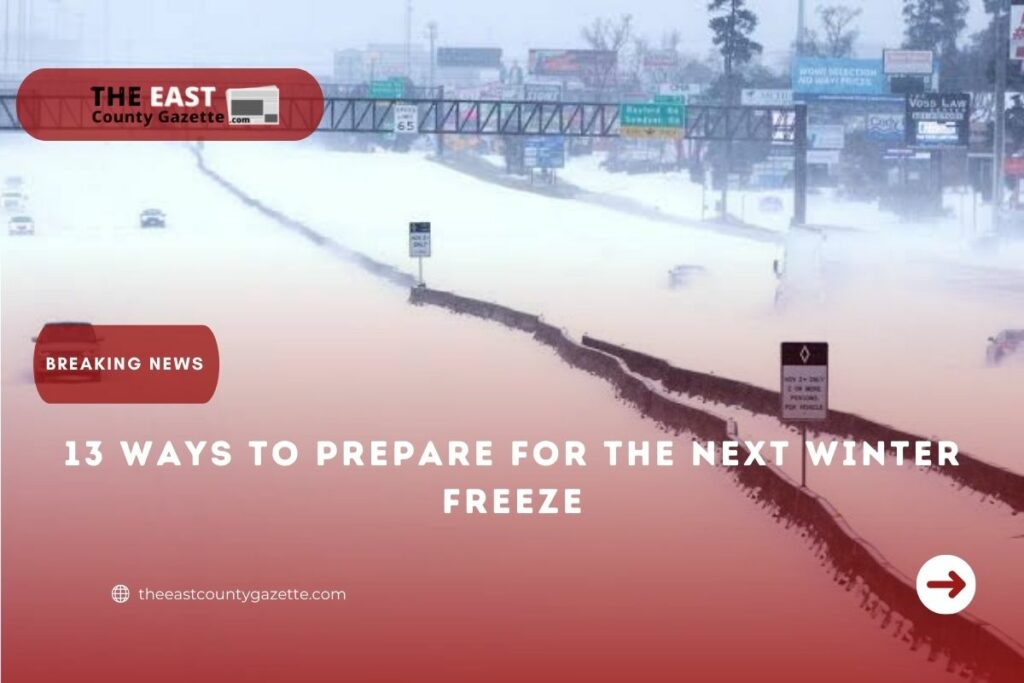According to Reports from Texas monthly, experts have shared 14 ways to prepare for the next winter Freeze.
One cannot forget easily the Texas Freeze that happened earlier this year. It went for 2 weeks and 3 days from February 10–27, 2021. It was a result of multiple severe winter storms and resulted in the deaths of 210 to 702 persons.
These days were characterized by Power outages in more than 4.8 million homes in Texas. It was recorded to be the most expensive natural disaster in Texas’s history. It affected the economy of Texas by causing situations ranging from flooding, crop losses, factory shutdowns. Here are 14 ways to prepare for the next winter Freeze.
Read More: Why Are Food Shortages Persistent in 2022?
1. Home Improvement
Expert Kimmel suggests that Insulation and education are needed to get the home ready. Ask a conditioner or heater expert to help check the home insulation, insulate exposed pipes, get a crescent wrench or water meter key just to make sure water and gas can be shut off if needed. Learn about how to shut off utilities. Avoid candles, invest in battery-powered lanterns, clean chimneys.
2. Get Emergency Kit Set.
Store batteries, flashlights, a weather radio, and enough water and nonperishable food for two to three days, with a gallon of water per person daily. Blankets, socks, a can opener, a list of phone contacts, enough cash, a deck of cards, or an engrossing book.
3. Get Ready to Ensure Devices Stay Charged.
Invest in a battery pack, cars can be used to charge(but cannot be used indoor), keep old cell phones, multiple cellphones will come in handy.
4. Get First Aid Ready
Scissors, Gauze bandages, plasters, dressings, adhesive and rolled bandages, aspirin, and antihistamine are all important for your first aid. Stores also sell fully stocked First Aid Kit. That may come in handy.
5. Food Type to Store.
Store protein and fiber foods, if there is still light, then simple go-to meals like ramen and fried egg, boxed macaroni, and cheese, rice, and beans are good. But if there are no power, store shelf-stable milk, and tofu, beef jerky, meal kits, canned or packaged tuna. Apple is also good. prepare camping stoves, keep eye on expiry dates of foods.
6. Store Water.
It is wise to store water at home. You can store it in bottles yourself or buy commercial bottled waters sufficient for everyone. It’s one of the cheapest and most prudent things that you can do,” Timmons says. Remember to replace water when they expire or when stored for over 6 months.
7. Plan to stay warm.
Prepare warm clothing and lots of blankets. Base layers, or thermal long underwear, can help your body retain heat. In case there are no heavy sweaters, layer your clothing, close door, close blinds to conserve heat, cuddle with family and pets.”Try insulated sleeping bags, that is the safest way,” says Ana Todd, an assistant clinical professor at the University of Texas at Austin School of Nursing.
8. Help Neighbours Stay Safe.
Meet neighbors, introduce yourself, chat folks up, you can use homeowner association, Nextdoor, and Facebook, or other social media to start a conversation. Create a plan on who is checking up on who when it’s too dangerous to travel, you can provide a walkie-talkie to those who are most vulnerable, have contact information handy. You can move in with someone you are worried about during this period or invite them over. You can also volunteer for emergency response.
9. Buy a Generator.
Kimmel, the UT-Austin meteorologist, has already purchased a full-house natural gas electrical generator and is waiting for it to be delivered. “I just have to because, after this winter, I’ve lost some of my trust in the grid,” he says. You can consider the permanent generator, solar installations that are safe to use.
Read More: President Biden Wants Employers to Require Unvaccinated Workers to Mandate Covid-19 Test by Feb. 15
10. Cars can be more Ice Resistant.
Ice scraper and brush to clear off snow should be handy. It doesn’t hurt to keep bags of sand or kitty litter in the back, either, in case your tires start spinning out and you need traction. Also, make sure to swing by your mechanic, who can check your fluid levels and tire inflation.
11. Ensure Safety of Your Pets.
Pets need access to food, water, coats, a warm place for shelter, and if possible make the Garage open to outdoor animals because they are at higher risk.
“It gets down to the basics in these kinds of things. Just like for us, right?” says Debra L. Zoran, a professor at Texas A&M’s College of Veterinary Medicine and founding member of its Veterinary Emergency Team.
12. Stay Updated about the Weather.
Watch the local television news, pay attention to advisories, watches, and warnings from the National Weather Service. “They get it right nearly every time,” Timmons says. Local and regional media outlets, including the Austin American-Statesman and the Texas Tribune, also mobilized during the storm to send safety and news updates via text message.
13. Stay off the roads.
“Let the community heal to a certain extent. Let the ice melt,” Timmons says. Also, come up with detailed emergency response for your family or business and make sure everyone knows it. Maybe even do a little rehearsal, just like fire drills at school. Ready.gov has a helpful page with tips. “Plan,” says Todd from UT’s School of Nursing. “Plan, plan, plan, plan. It’s not a matter of if. It’s a matter of when.”

